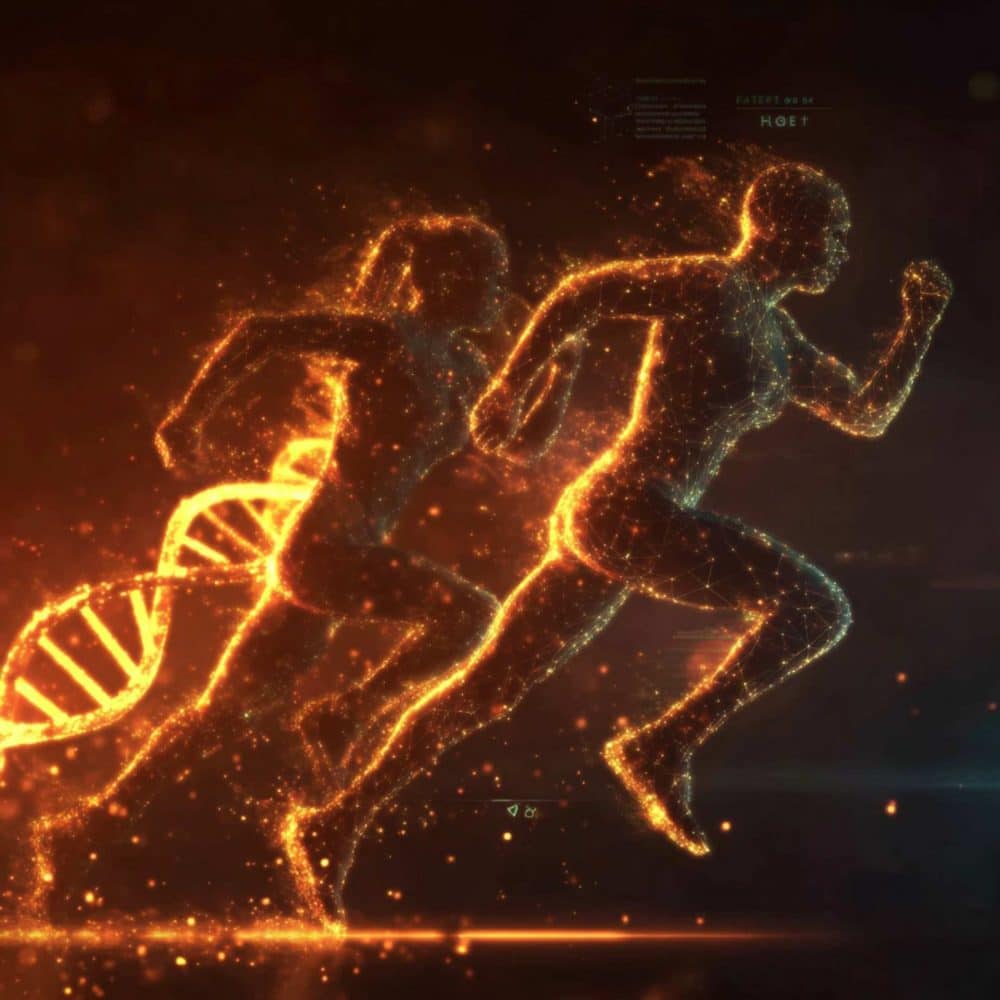Cancer & Rare Health DNA Test – Pathology
Cancer, Rare Diseases & Medical Conditions
₹ 27,499.00 Original price was: ₹ 27,499.00.₹ 17,999.00Current price is: ₹ 17,999.00.
Most cancers and rare diseases remain hidden until they have already progressed to advanced stages. By the time symptoms appear, treatment is harder, recovery takes longer, and costs are higher. This panel screens 78 genes associated with 41 serious conditions, giving you an early warning system for your health. When combined with pathology (blood tests), you get both your genetic risks and a real-time snapshot of your current health.
Why it matters:
Many cancers and genetic diseases stay silent for years. By the time they surface, treatment is more difficult, expensive, and emotionally draining. With this test, you get a roadmap for preventive action, family planning, and proactive healthcare.
By combining DNA testing with pathology, you get a complete view: your possible future health risks and your current health status. This allows you to act early, adopt preventive care, and protect both yourself and your family.
Risks of not doing this test:
- Missed opportunity for early detection and preventive care.
- Risk of unknowingly passing hereditary conditions to children.
- High medical costs and emotional toll from late-stage diagnosis.
How Pathology Adds Value
While DNA shows your inherited risks, pathology tests show whether those risks are already active. For example:
- CBC (complete blood count) – detects anemia, infections, early cancer warning signs.
- CRP (C-reactive protein) – inflammation marker, linked to cancer and autoimmune diseases.
- Liver & kidney function tests – check for organ stress caused by genetic conditions.
- Hormone panels – thyroid and sex hormones to validate DNA risks.
What you’ll learn:
Hereditary risks for breast, ovarian, colon, thyroid, kidney, and other cancers (BRCA1/2, APC, MLH1, TP53).
Likelihood of rare genetic diseases such as Fabry’s disease, Wilson’s disease, Pompe disease, or Marfan syndrome.
Variants linked to connective tissue, cardiovascular, and neurological conditions that could impact you or your children.
Hereditary risks for breast, ovarian, colon, thyroid, kidney, and other cancers (BRCA1/2, APC, MLH1, TP53).
Likelihood of rare genetic diseases such as Fabry’s disease, Wilson’s disease, Pompe disease, or Marfan syndrome.
Variants linked to connective tissue, cardiovascular, and neurological conditions that could impact you or your children.
How It Works
A trained professional visits your home for a painless blood draw.
The sample is processed in an accredited Origin108 genetics laboratory.
Your DNA is analyzed under ACMG (American College of Medical Genetics) guidelines for clinical accuracy.
Within 28 working days, you receive a detailed and patient-friendly report.
A trained professional visits your home for a painless blood draw.
The sample is processed in an accredited Origin108 genetics laboratory.
Your DNA is analyzed under ACMG (American College of Medical Genetics) guidelines for clinical accuracy.
Within 28 working days, you receive a detailed and patient-friendly report.
Report includes:
Dashboard summarizing **19 cancers, 12 rare diseases, and multiple actionable medical findings**.
Condition-by-condition explanations with gene markers, such as BRCA1 → hereditary breast cancer risk.
Clear next steps: preventive screenings, genetic counseling, and lifestyle adjustments.
Cancers (19 conditions screened)
• APC: Familial adenomatous polyposis – increases colon cancer risk from polyps.
• MLH1, MSH2, MSH6, PMS2: Lynch syndrome – higher risk of colon, uterine, and gastric cancers.
• RET: Multiple endocrine neoplasia (types 2A & medullary thyroid carcinoma).
• MUTYH: MUTYH-associated polyposis – multiple colon polyps, colon cancer risk.
• VHL: Von Hippel-Lindau syndrome – risk of kidney, adrenal, and brain tumors.
• PALB2: Hereditary breast cancer – increased breast cancer risk.
• MEN1: Multiple endocrine neoplasia type 1 – affects parathyroid, pituitary, pancreas.
• TSC1, TSC2: Tuberous sclerosis – benign tumors in brain, kidneys, skin, heart.
• NF2: Neurofibromatosis type 2 – benign tumors in brain and spinal cord.
• PTEN: PTEN hamartoma tumor syndrome – increased breast, thyroid, kidney cancers.
• WT1: Wilms tumor – kidney tumor in children.
• SDHB, SDHC, SDHD: Paraganglioma and pheochromocytoma – rare tumors in adrenal glands.
• BMPR1A, SMAD4: Juvenile polyposis syndrome – colon and stomach polyps with cancer risk.
• STK11: Peutz-Jeghers syndrome – polyps and pigmentation, increased GI cancer risk.
• TP53: Li-Fraumeni syndrome – multiple cancer risks including breast, sarcomas, brain tumors.
• RB1: Retinoblastoma – eye cancer in young children.
Rare Diseases (12 screened)
• OTC: Ornithine Transcarbamylase Deficiency – urea cycle disorder, ammonia buildup, vomiting, confusion.
• RYR1, CACNA1S: Malignant hyperthermia – dangerous reaction to anesthesia, muscle rigidity, high fever.
• GLA: Fabry’s disease – affects heart, kidneys, skin; pain, kidney failure, strokes.
• RPE65: RPE65-related retinopathy – progressive vision loss leading to blindness.
• TTR: Hereditary transthyretin amyloidosis – protein deposits in nerves and heart, causing weakness and heart failure.
• HFE: Hereditary hemochromatosis – body absorbs too much iron, damaging liver, heart, pancreas.
• GAA: Pompe disease – affects muscles and breathing, weakness, heart enlargement.
• ATP7B: Wilson disease – copper buildup damaging liver and brain.
• FBN1: Marfan’s syndrome – affects connective tissue, long limbs, heart valve problems, aortic aneurysm risk.
• SMAD3, TGFBR1, TGFBR2: Loeys-Dietz syndrome – weak arteries leading to aneurysms, skeletal abnormalities.
• ACVRL1, ENG, SMAD4: Hereditary hemorrhagic telangiectasia – abnormal blood vessels, frequent nosebleeds, GI bleeding.
Medical Conditions (ACMG guidelines)
Loeys-Dietz Syndrome – pathogenic variant in SMAD3 gene detected. Recommendation: genetic counseling, cardiovascular monitoring, and proactive management to prevent aneurysm rupture.
Top Rated Products
-
Rated 0 out of 5Price
₹ 49,999.00Original price was: ₹ 49,999.00.₹ 19,999.00Current price is: ₹ 19,999.00. -
Rated 0 out of 5Price
₹ 47,999.00Original price was: ₹ 47,999.00.₹ 17,999.00Current price is: ₹ 17,999.00. -
Rated 0 out of 5Price
₹ 24,499.00Original price was: ₹ 24,499.00.₹ 14,999.00Current price is: ₹ 14,999.00. -
Rated 0 out of 5Price
₹ 22,499.00Original price was: ₹ 22,499.00.₹ 12,999.00Current price is: ₹ 12,999.00.








